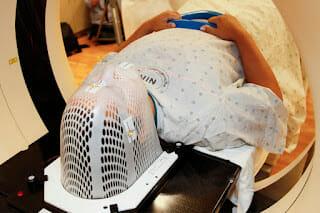Treatment
Health screening is essential for early intervention and treatment of medical issues, as it provides an opportunity to detect health problems before they become too severe. Unfortunately, many people don’t realize the importance of proactive health assessment; rather than waiting until symptoms arise or conditions worsen, taking preventative measures can be beneficial for one’s overall well-being.
In this blog post, we will explore why you should get an annual wellness visit and how it plays a role in early intervention and treatment. We’ll look at who should consider getting screened and the types of screenings available; ultimately demonstrating that proactively monitoring your health through periodic screenings can make all the difference when it comes to optimizing physical functioning and well-being.
What Health Screening IS and Its Benefits
Health screening is an important practice in preventative healthcare that helps to identify any issues which may otherwise go unnoticed and untreated. When done regularly, health screening can detect early signs of various ailments, such as heart disease, diabetes, cancer, and even psychological disorders. In some cases, detection at this stage may help to intervene in the condition before it becomes more serious or intrusive in our lives. Additionally, health screening allows us to measure our overall well-being to ensure that we are living in a way that promotes long-term health in all areas of our life. You can find health checkup packages as well that tests for several illnesses and conditions at once. From physical fitness and nutrition to mental health and stress levels, health screenings enable us to take a holistic view of ourselves and get ahead of any potential problems with early intervention when necessary.
Early Intervention Impact on Lifestyle Practices
Early intervention is integral for making lasting changes to lifestyle practices. By accessing education, support, and resources from a healthcare provider as soon as possible, people have the opportunity to be better informed about the steps they can take to protect their well-being. With early detection and guidance, individuals can make more informed decisions about nutrition, fitness, and other health-related habits that impact longevity and quality of life. Furthermore, early intervention gives those at risk the chance to access treatments or prescriptions that manage chronic conditions before they become severe or irreversible. Consequently, taking proactive measures with early intervention can ultimately prevent long-term physical or mental health issues and save lives.
How Health Screenings Improve Diagnosis and Treatment
By conducting comprehensive health screenings that involve physical assessments, such as blood work, chest x-rays, ultrasounds, or CT scans, practitioners can accurately assess overall health status in a relatively short amount of time. This not only allows for earlier diagnosis but can also help patients receive proper treatments more quickly. Through timely interventions and treatments issues are often resolved faster leading to improved outcomes for the patient. Additionally, due to high-quality services and better prevention strategies resulting from regular health screenings, healthcare costs have decreased over time. Ultimately health screenings provide a cost-effective way to improve diagnostic accuracy in cases that cannot be obtained through clinical means alone.
Types of Health Screenings & Their Purpose
Health screenings range from annual physical examinations and blood tests to more specialized screenings such as mammography, Pap smears, colonoscopy, and endoscopy. All of these provide doctors with valuable information about the patient’s overall health status and enable them to detect the presence or absence of any disease. By diagnosing diseases in their early stages, before any symptoms become obvious, treatments can be started earlier and with greater success rates than when conditions are detected later. Additionally, regular screening helps to determine if there are any changes in existing conditions that may require additional medical care. Through health screenings, interventions and treatments can be provided quickly for a wide variety of cancer-related illnesses such as skin cancer, breast cancer, cervical cancer, lung cancer, and more.
When to Have the Tests Done
Knowing when to have these life-saving tests done can make all the difference in terms of maintaining your well-being. For adults, it is generally recommended that regular health screenings begin at age 50 or older – some tests should be conducted annually, while others may involve fewer visits depending on risk factors and individual health status. Even those who feel healthy should get tested – some conditions are silent and only a doctor can detect their presence. Furthermore, genetic testing could reveal any familial conditions for which you may be at increased risk.
Early intervention and preventive health screenings can make a significant difference in the diagnosis and treatment of many diseases. By accessing healthcare providers early on, individuals can detect diseases earlier, manage them more effectively, and ultimately live healthier lives.



